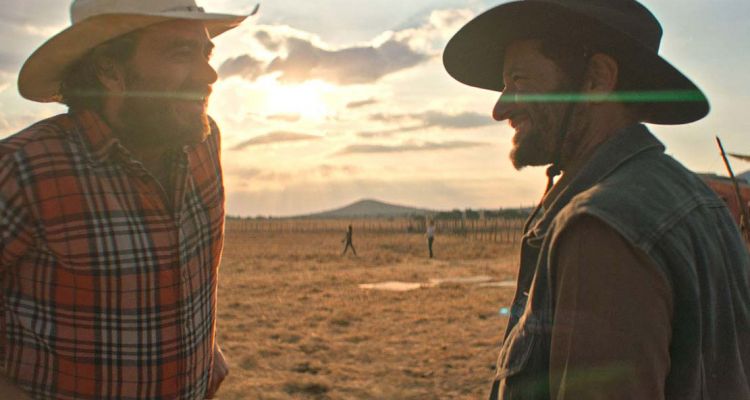Ever since he shook the cinematic world with the release of his visionary first feature, “Japón,” and then followed that up with his mesmerizing magnum opus “Silent Light,” director Carlos Reygadas struggled to find the same kind of universal acclaim with his polarizing and mystical 2012 film “Post Tenebras Lux” (a beautifully maddening picture which many adore or loathe in equal measure). As much as that film’s ambitions were more admirable than successful, Reygadas now returns, six years later, with a film that can be only described as a total failure.
Casting himself and his wife (Natalia López) as the lead characters, “Our Time” is the director’s most personal film as it explores a married couple’s disintegration, it’s such a meta experience that it might very well be mirroring his own union with López in real-life. It’s also as equally fetching-to-look-at as it is alienating.
READ MORE: Toronto International Film Festival: 22 Most Anticipated Movies
Playing Juan and Ester, a married couple in an “open relationship” that live on a remote farm with their two children, this is, in essence, a way for the director and his wife to play themselves. Both like the calmness and solitude of living outside the West’s cultural norms, and that includes being honest with each other about their sexual desire for others. Things, of course, become very complicated when Ester falls in love with an unnamed American horse trainer (as played by the excellent Phil Burgers) a rancher living in their area.
READ MORE: 55 Must-See Films: The 2018 Fall Movie Preview
Yes, Ester and Juan have an open relationship, but the fact that Ester refuses to disclose the affair with the American to her husband sets off a trigger in Juan’s head which leads to jealousy, spying, and, ultimately, tragedy. Why the sudden impulse of jealousy on Juan’s part? That’s left up to the viewer to decide, but we do learn that Juan is a man that likes to be in control, and because he’s lost his authority on Ester, he snaps.
This meditative take on marriage may sound fascinating on paper, but Reygadas amps up the pretensions by making his film clock in at an interminable 173 minutes. What could have easily been cut down by half the length is needlessly extended with long takes where nothing much happens. Despite the sometimes wondrous imagery, the talented writer-director presents on-screen, the cumulative effect feels like watching paint dry.
READ MORE: 13 Movies To See In September
It’s obvious that Reygadas is exploring a therapeutic approach to his film; he’s trying to dissect his own marriage, with his wife as the co-conspirator, but the result is mundane and lacks the spiritual nature that made his best work so touching. Filming oneself on-screen is a risky endeavor, especially when it involves tackling details that may not interest the viewer as much as the filmmaker would like. One does come to realize the couple’s therapy-session that is presented means a great deal to the director and his partner, but the movie can never offer that immersive, enveloping feeling Reygadas’ best work produces because it always leaves you viewer at a distance, on the outside looking in.
“Our Time” is gorgeously shot, naturally, and the intentions are well-meaning but far too self-serving. Gone is the hypnotism of Reygadas’ best work; the soulful spirituality and existentialism that made his best work ascend into the high heavens has seemingly vanished with the same kind of ephemeral elusiveness. What’s left then is far more enduring: the unpleasant feeling of being trapped in a never-ending barrage of pompousness. [D]
Check out all our coverage from the 2018 Toronto International Film Festival here.

